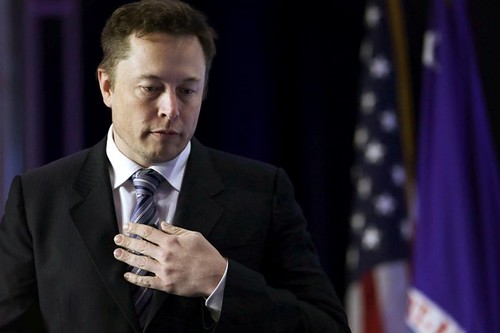Peeved EELV
Thursday, May 22nd, 2014Filing suit in the Court of Federal Claims was the first step, then came the response from United Launch Alliance. And now, at the National Space Symposium in Colorado, they start swinging at each other.
The leadership at ULA may not read what’s happening with the Russian Federation’s attempts at global domination, but they do read Stars & Stripes…
In the most recent court filing, the California-based Space Exploration Technologies, which is in the process of developing a launch site here on Boca Chica Beach, said its amended complaint is the result of four recent developments:
- SpaceX has submitted all required flight data for its third qualifying certification launch, and SpaceX is therefore eligible to compete for the Air Force’s business.
- Recent Air Force statements indicate that it will purchase some or all of its future launch vehicles on a sole-source basis from ULA, even though SpaceX is eligible to compete.
- The Air Force recently indicated that, during the first quarter of fiscal year 2015, it will purchase a number of launch vehicles for which SpaceX is qualified to compete.
- SpaceX learned on April 17 that the Air Force decided not to open the purchase to competition because the Air Force has an “existing 36-core contractual requirement” with ULA.
This is among the most recent developments in the complaint that SpaceX brought against the Air Force April 28 in the federal claims court in Washington D.C. ULA intervened in the litigation.
Lawyered-up ULA comes back with a 5-page press release, nicely distilled and summarized in the Denver Post…
ULA CEO Michael Gass said the cost per launch averages $225 million, not the erroneously computed figure of more than $460 million that SpaceX founder Elon Musk frequently cites.
“SpaceX is very aggressive in their public relations and how they diffuse or obfuscate the issue is by not ever talking about apples and apples, it’s apples and oranges,” Gass said.
ULA’s simpler rockets cost $164 million and its most powerful rockets hit $350 million, he said.
At the heart of the debate is a $11 billion block-buy contract for 36 rockets awarded to ULA by the U.S. Air Force last year.
SpaceX sued the Air Force last month for what it claimed was illegal actions blocking competition by effectively giving ULA — a joint venture between Boeing Co. and Lockheed Martin Corp. — a monopoly on launch services.
“People use a pejorative term like monopoly. Those are incongruent when you talk about national security. It’s not a commercial market, it’s not consumerism,” Gass said. “I like to think of it as a sole-source provider.
“The nation made a decision to meet its military needs. They wanted assured access and two systems. ULA was formed to solve that problem. Consolidate the infrastructure, deliver two systems as one team, more cost effectively to meet the end-mission needs.”
Gass also said the U.S. space industry is currently at the all-time peak for the number of launches but said that will drop off by 20 to 30 percent in the next five years.
“There was a thing called sequestration,” he said. “Satellites aren’t being ordered.”
When asked how this will impact ULA’s large operations, Gass said “we will right-size to the demand that can flourish again.” This likely means a 20- to 30-percent reduction in workforce, he said.
About 1,700 of ULA’s 3,600 employees are in Colorado.
ULA also released its add-on launch costs if the government decides to grant the company up to 14 more launches. Much to the surprise of observers, each additional launch would cost less than $100 million for the lower-capability rockets.
But SpaceX refutes these figures.
“The Air Force budget for 2015 speaks for itself — in the budget, three single core vehicles add up to $1.212B, or $404M per vehicle. Mr. Gass’ statements run counter to budget reality,” SpaceX president and chief operating officer Gwynne Shotwell said in a statement Wednesday.
“ULA has the most expensive launch services in the world — nearly double that of the next most expensive competitor. When you don’t have to compete, there’s little incentive to control costs or innovate.”
A recent GAO report on annual assessments of major weapons programs puts the program unit cost at $420 million per launch, but that number looks at the whole life of the program not just this block buy.
And that’s how to get members of Congress to pay attention. Mess with us and there will be layoffs.
Give them a chance to compete. The launch market is looking good for SpaceX, so let them have a go at some EELV business. And their rocket engines are MADE IN THE U.S.A.

